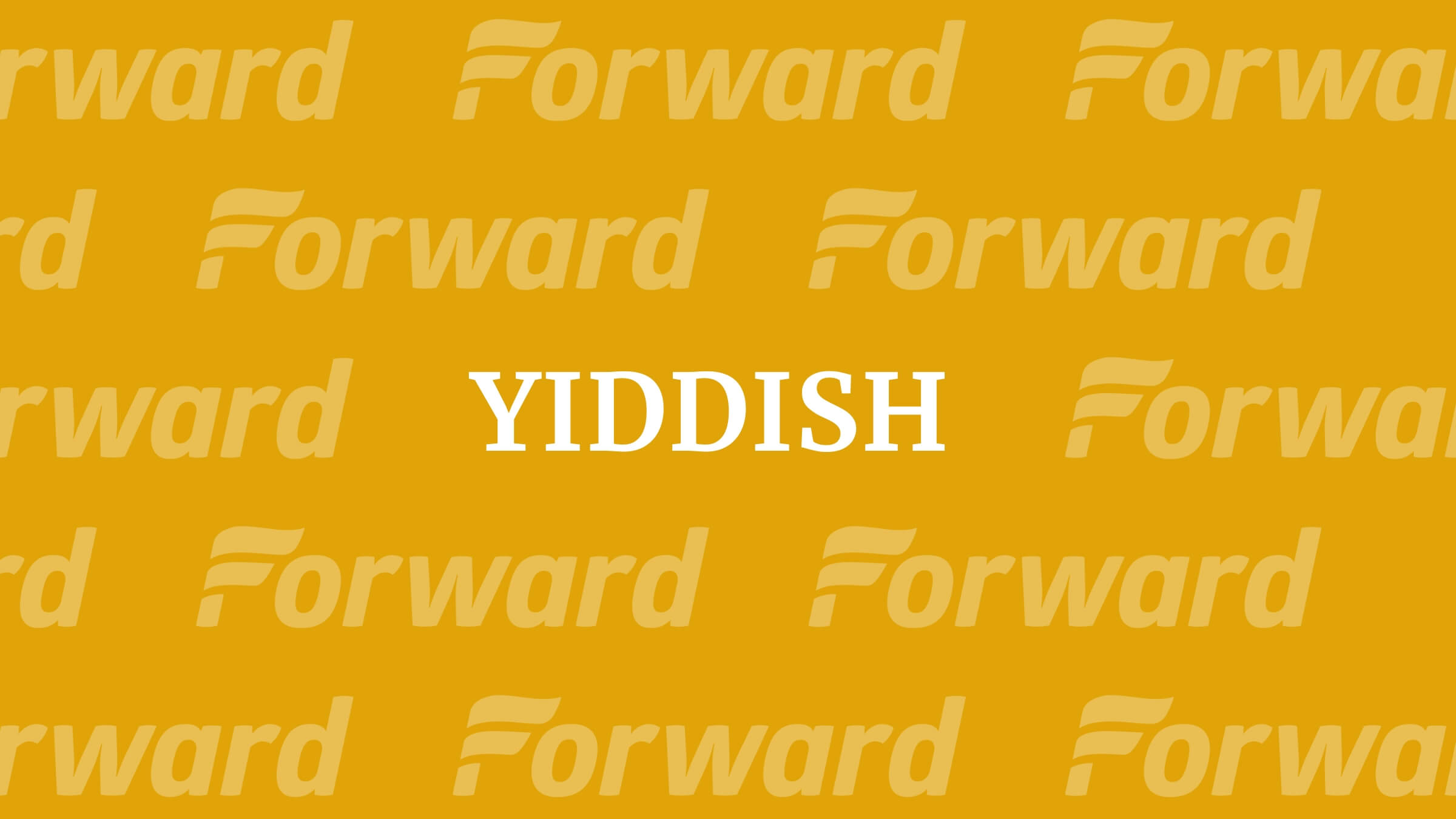An album of Yiddish electropop from Poland captures the coronavirus age

Graphic by Angelie Zaslavsky
Read this article in Yiddish
Listening to Maria Ka’s Yiddish electropop album, “Di Arumike Velt” [The Surrounding World], was for me like hearing music from a parallel universe.
Not only are the Yiddish songs about the coronavirus era and issues facing women in 2020s Poland, but the music itself is unlike anything I’ve heard performed in the language. Maria Kawska, a millennial resident of Gdansk, who records under the stage name Maria Ka, has a unique sound that includes elements of electronic dance music, europop, alternative rock and cold wave. Playing electric guitar, piano and keyboard, she makes ample use of a looping machine.
Despite the psychedelic beats that often reach a pulsing crescendo, the Yiddish lyrics are readily clear. “Di Arumike Velt”, released last August, shows off Maria Ka’s talent as a lyricist. Her verses seem simple at first, but many are made up of couplets that, perhaps unsurprisingly for a psychology major, function as self-contained riddles. In “Di Arumike Velt” [the surrounding world], the album’s title track, for instance, she sings: “Tsvey zaytn hot mayn velt/ di kranke un gezunte/ vi mayne tsvey hent” [in her translation: two sides has my world/ the sick and the healthy one – two, just as two are my hands].
It was during her undergraduate studies at Krakow’s Jagiellonian University that Maria Ka became enamored with Yiddish. Raised in a musical home and having performed in Polish and English since she was a young child, she soon added Yiddish songs to her repertoire.
“Because of my Jewish background, the language is close to my heart,” she told me over Zoom.
She continued in Jewish Studies, completing a master’s thesis on the role of women in Yiddish cinema. The topic inspired her first songs in Yiddish, which she wrote to accompany the landmark 1924 silent film “Tkies Kaf” [The Vow], a forerunner of “The Dybbuk”.
Maria Ka writes Yiddish songs about contemporary topics to show that the language is still vibrant. Since she is not a big fan of Klezmer or other traditional Jewish genres, she prefers to create music that reflects her own tastes. Asked to name some of the artists who have shaped her style, she cited the blues and psychedelic rock band, The Dead Weather, the French avant-garde electropop and cold wave group, La Femme, and the Icelandic singer, Bjork.
“Di Arumike Velt,” which besides the three original tracks includes Maria Ka’s versions of two classic Yiddish songs, “Mayn Shtetele Beltz” My Little Town of Belz and the WWII Jewish partisan anthem “Zog Nit Keynmol”, also features a visual component. Each piece is accompanied by a short film with kaleidoscopic colors and ephemeral images that create a phantasmagoric effect.
The trippy aesthetic captures the mood of the disorienting first weeks of the coronavirus pandemic. March 2020 found Maria Ka, who frequently performs in Gdansk’s historic synagogue, cooped up at home. She used her quarantine time to record “Di Arumike Velt” and her forthcoming album, “Der Hemshekh” [The Continuation].
Unlike her previous solo project, “Der Hemshekh” was produced with a band. The songs respond to the political situation in Poland, where the far-right government has launched an unremitting campaign to restrict abortion rights. Maria Ka notes on her Facebook page that the album was inspired by “invisible women’s stories and biographies filling in the hitherto patriarchal narrative.”
“Der Hemshekh” will feature five original tracks alongside Maria Ka’s take on five well-known Yiddish songs, including “Sheyn Vi di Levone” [Pretty as the Moon] and “Papirson” [Cigarettes] with reimagined lyrics that highlight a woman’s perspective. She hopes to release the album as a physical CD or vinyl.
An exacting translator of her own lyrics into English and Polish (see the subtitles on her YouTube videos), Maria Ka is at work on another album, “Di Shaykhesn,” (Connections), which will feature songs originally written in a mix of English, Polish and Yiddish. The project will explore the interplay of languages and her experiences with multicultural identities.
























